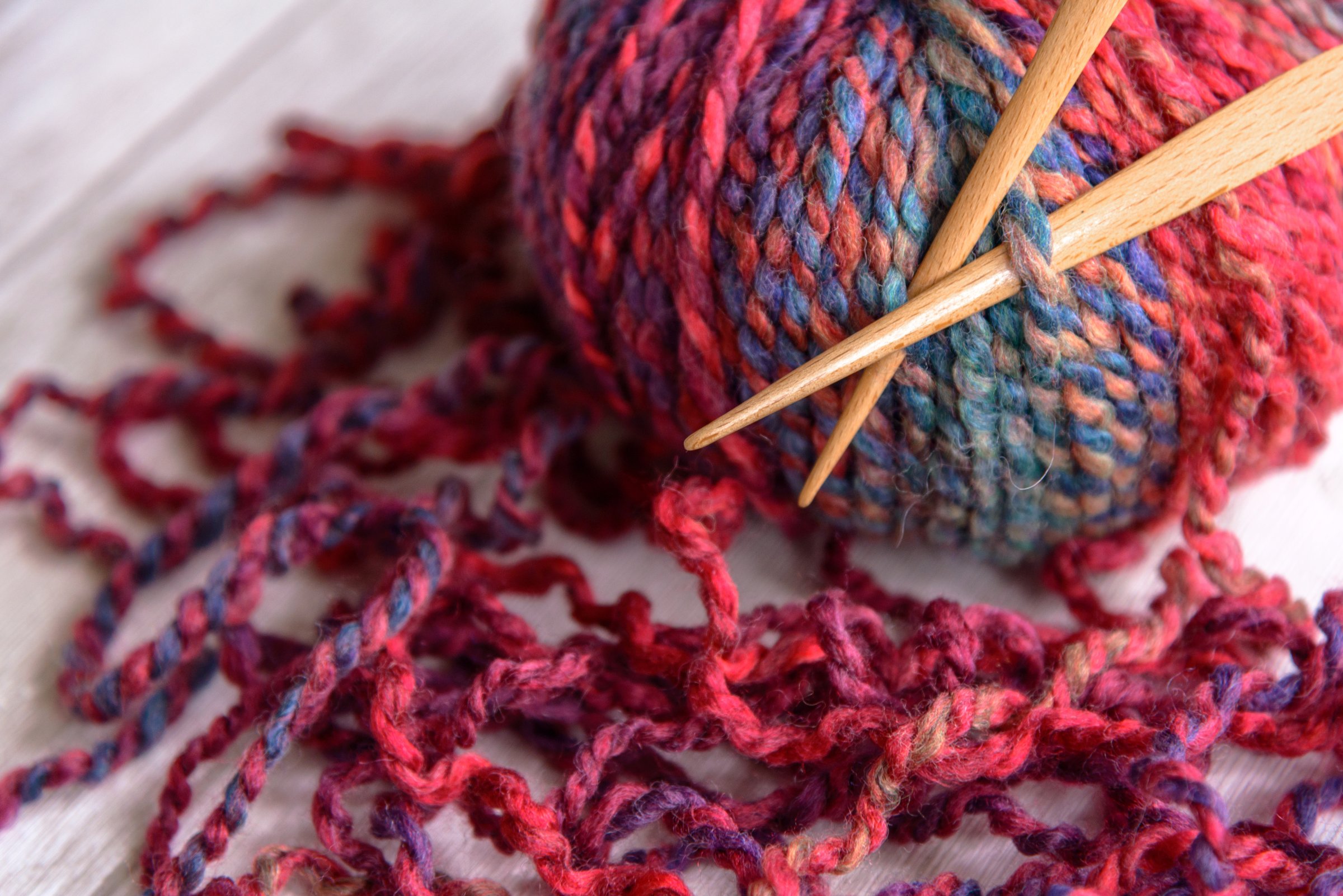
Ravelry, a popular social network and online community for knitters and other needleworkers, has banned posts in support of President Donald Trump, saying his administration is “undeniably” supportive of white supremacy.
The website published a statement Sunday, outlining its new policy. “We cannot provide a space that is inclusive of all and also allow support for open white supremacy,” the statement read. Trump was criticized in 2017 for saying there were “very fine people on both sides,” in the wake of violence at a white nationalist Unite the Right rally in Charlottesville, Va.
Ravelry is among the most popular online platforms for knitters and crocheters, with 8 million members, more than 100,000 followers on Twitter and 80,000 Instagram followers. While Trump supporters themselves are not banned, they are asked to keep their political views to themselves. The statement noted: “We are definitely not banning conservative politics. Hate groups and intolerance are different from other types of political positions.”
Ravelry added that people would not be banned for expressing support for Trump in the past and said people are not allowed to push people who support Trump into vocalizing their opinions. A spokesperson for Ravelry did not respond to TIME’s requests for comment. The site did not specify which of Trump’s actions or his administration’s policies that they viewed as supporting white supremacists, or otherwise discriminating against marginalized communities. But the site does cite a similar set of rules enacted last year by a role-playing forum, RPG.net, as providing relevant references; the eleven examples of values “wholly inconsistent” with the site’s own given there include the Trump administration’s immigration policies, hostility to the transgender community and “dog-whistled love note[s] to white nationalists.”
“Further reading on this and all of the above topics are freely available from any reputable news site,” the policy concludes.
The revamped policy was met with broad approval online, though some criticized the site for making things political. Others, within the knitting community and outside of it, lauded Ravelry for taking a stance.
NPR reports that pro-Trump projects have popped up on the forum, including hats and scarf patterns that say “Build the wall” and refer to Trump’s Make America Great Again slogan.
Farrah Rochon, a crocheter who has occasionally visited Ravelry’s forums for tips on making hats, tells TIME she has previously seen people post photos of projects that advertise support for Trump, including blankets that say “Trump 2020” or American flags boasting his name.
“Trump’s name is triggering for people,” she says. “The way they’ve co-opted the American flag to mean that if you don’t support Trump, you’re not patriotic—it frustrates me.”
Detractors to Ravelry’s policy, Rochon says, are revealing just how far they’ll go to conflate being a Republican with being a white supremacist, despite the site’s insistence that it is not policing conservative thought. “I have many Republican friends who don’t like or support Trump. There’s a difference,” she says. “Ravelry didn’t say anything about Republicans, just that the Trump administration has absolutely shown they have white supremacy tendencies.”
Knitting has risen as a popular hobby in recent years, and has become associated with progressive causes. In, the practice went viral after thousands of women made and bought pink hats with cat ears in reference to Trump’s derogatory comments about women. Knitters and crocheters have also made statements through actions like yarn bombing, in which graffiti is made through knitted or crocheted yarn.
Ravelry’s choice to take a firm stance comes as a number of social media and tech giants, such as YouTube, Facebook and Twitter, struggle to establish consistent messaging regarding hate speech and face criticism for allowing extremism. In March Facebook extended its ban on hate speech to prohibit white nationalism and white separatism. YouTube made a similar move earlier this month to ban videos with white supremacy and neo-Nazi viewpoints. (Around the same time, YouTube was staunchly criticized for allowing conservative comic Steven Crowder to make homophobic comments that targeted another video maker; the platform eventually temporarily demonetized his channel.)
Communities like Ravelry are better able to draw hard boundaries on what’s acceptable because they serve fewer people, according to Tiffany C. Li, an attorney and fellow at Yale Law School’s Information Society Project. Li says Ravelry can make decisions without receiving as much blowback as big platforms because their communities tend to have people with mostly similar views, whereas on places like YouTube or Twitter, people are more splintered.
“The issues with big social media companies are that they are moderating content in really different ways,” she says. “The rules are inconsistent, and they’re constantly changing.”
Li says Ravelry is fully within its rights to ban people from expressing support for Trump because it’s private, and not government-owned.
For Rochon, Ravlery’s new policy means she will frequent the site more often. “I actually looked around there yesterday for the first time in a long time,” she says. “I’ll probably start inching back to the message boards and community forums.”
More Must-Reads from TIME
- Introducing the 2024 TIME100 Next
- The Reinvention of J.D. Vance
- How to Survive Election Season Without Losing Your Mind
- Welcome to the Golden Age of Scams
- Did the Pandemic Break Our Brains?
- The Many Lives of Jack Antonoff
- 33 True Crime Documentaries That Shaped the Genre
- Why Gut Health Issues Are More Common in Women
Write to Mahita Gajanan at mahita.gajanan@time.com